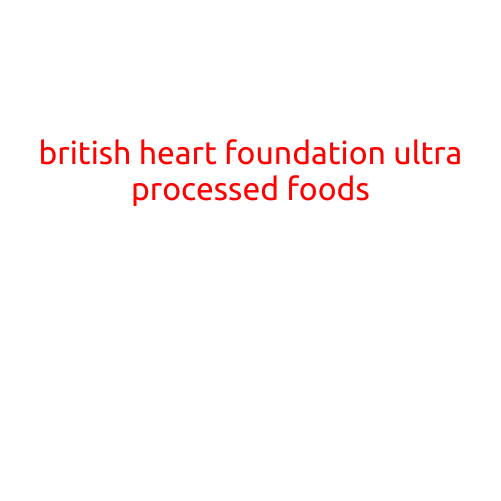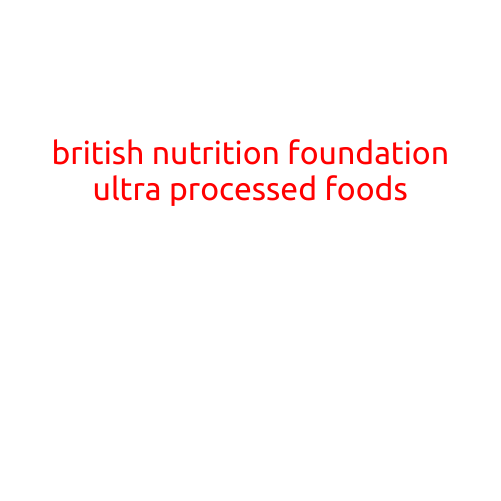
BNF Ultra-Processed Foods: The Silent Enemy of Modern Nutrition
The British Nutrition Foundation (BNF) has recently issued a statement on ultra-processed foods, warning that these foods are contributing to a decline in the overall health of the population. Ultra-processed foods are defined as products that contain a high amount of ingredients from a list of over 20 substances, which are typically added to food to extend shelf life, enhance flavor, and improve texture.
The BNF’s report highlights the alarming increase in the consumption of ultra-processed foods in the UK and internationally, with some studies suggesting that they now account for over 50% of the average person’s daily diet. These foods are often marketed as convenient and affordable, but they are far from being a healthy choice.
The Definition of Ultra-Processed Foods
To be classified as ultra-processed, a food product must meet the following criteria:
- Composed of a combination of ingredients from a list of over 20 substances, including:
- Sugars and fats
- Starches and fibers
- Protein isolates and concentrates
- Ash from mineral sources
- Synthetic additives (e.g., colors, flavors, preservatives)
- Contain little to no whole food ingredient
- Have a high concentration of added sugars, sodium, and saturated fats
- Are often packaged and prepared for consumption
Examples of ultra-processed foods include:
- Frozen pizzas and pizza snacks
- Cereals and mueslis
- Processed meats (e.g., hot dogs, sausages, bacon)
- Packaged desserts (e.g., cakes, cookies, ice cream)
- Sugary drinks (e.g., soda, energy drinks, sports drinks)
- Bottled dressings and condiments (e.g., mayonnaise, ketchup, mustard)
The Health Risks of Ultra-Processed Foods
Consuming ultra-processed foods regularly has been linked to a range of serious health problems, including:
- Increased risk of chronic diseases: Ultra-processed foods are associated with a higher risk of developing type 2 diabetes, cardiovascular disease, and certain cancers.
- Contribution to weight gain: Consuming high amounts of ultra-processed foods is linked to an increased risk of obesity and metabolic syndrome.
- Negative impact on gut health: The high levels of added sugars, salt, and unhealthy fats in ultra-processed foods can disrupt the balance of gut bacteria, leading to a range of health problems.
- Decreased nutritional value: Ultra-processed foods are often stripped of essential nutrients and fiber, leading to nutrient deficiencies and impairing overall health.
What Can You Do?
Reducing your consumption of ultra-processed foods is crucial for maintaining a healthy diet. Here are some simple tips to help you make the transition:
- Shop the perimeter of the grocery store: Focus on whole foods, such as fruits, vegetables, lean proteins, and whole grains, which tend to be less processed.
- Read food labels: Be aware of ingredients and avoid products that contain more than five listed ingredients.
- Cook from scratch: Preparing meals from whole ingredients can help you avoid ultra-processed foods and ensure you’re nourishing your body with wholesome nutrients.
- Plan your meals: Creating a meal plan can help you avoid last-minute decisions to grab ultra-processed foods on-the-go.
Conclusion
The BNF’s warning about ultra-processed foods is a timely reminder of the importance of making informed food choices. By understanding the risks associated with these foods and taking steps to avoid them, we can all contribute to a healthier, more sustainable food culture.





